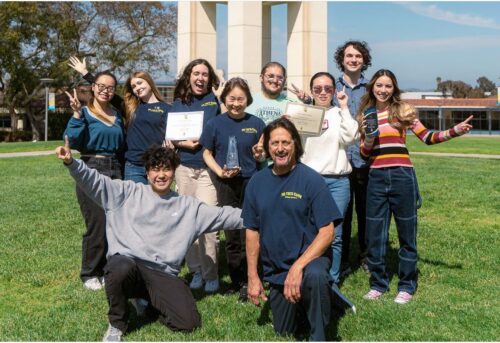Many might call James Elliott’s life a miracle; to him, it’s an testament to what happens when people care for and love one another.
When James was 19, he was incarcerated for his role in an armed robbery. He spent the next six years in prison. Nearly a decade later, the miracle: he will be attending Columbia University this fall as a Program for Academic Leadership and Service (PALS) Scholar, which covers full tuition. He is also the first recipient of Phi Theta Kappa’s Presidential Award for Leadership Excellence, a new two-year transfer scholarship of up to $30,000 a year.
“I want people to know that success never happens alone, we are strongest when we stand together and support one another,” he said. “Sometimes we need to be someone else’s mirror, reflecting back all the good that they fail to see in themselves.”
James began taking college courses behind bars. Upon his release, he re-enrolled at Delaware Technical Community College’s Wilmington Campus — he had been a student there at the time of his arrest.
At the same time, in 2017, PTK’s Board of Directors opened membership to those currently incarcerated or on parole. He joined and served as a chapter and regional officer before making history as the first student with a criminal record elected to international office, 2019-2020 International President.
James made PTK history more than once. In 2019, he was named to the prestigious 20-member All-USA Academic Team, and he was one of 49 students awarded the New Century Transfer Pathway Scholarship — the first convicted felon to receive either award.
Through his three years as an active PTK member, James said he has grown immensely and been pushed outside of his comfort zone. He said he’s been challenged in how he views his own education and the world around him.
“It has made me a person who values my neighbor and their beliefs, even if they differ from my own,” he said. “I’ve learned the importance of truly listening to others to better understand who they uniquely are and to serve them.”
He’s transformed professionally as well. After being incarcerated for six years, his brain was operating in a “street mentality”; from the way he walked, talked, dressed, and interacted with other people, it was clear he’d been in prison. He knew a professional change would be the only way he could make the transition back into society, so he utilized programs like Competitive Edge, Transfer Edge, and Employment Edge.
James is clear that none of his accomplishments would have been possible without the support network he built at Delaware Tech and in PTK. Countless people challenged his norms, beliefs, stereotypes, and perceptions. They pushed him to believe in himself, pursue leadership positions, and apply to Ivy League institutions like Columbia.
He plans to major in Political Science with a concentration in Human Rights, attend law school, and become a politician or possibly even a judge.
“I found a place where my past doesn’t matter,” he said. “I found people who value me for just being James. Lastly, I found my purpose of serving others.”
Along the way, James has advocated for prison education on his campus and others. He participated in a roundtable discussion with state officials for legislative changes regarding prison reform, and he spoke at several PTK induction ceremonies inside prisons.
In May 2020, his work came full circle as Delaware Tech was accepted into the Second Chance Pell Grant Program, bringing the opportunity for higher education to prisons across the state. When incarcerated people participate in prison education programs, they are 43 percent less likely to return to prison.
“When we come together as a society and invest in each other, the impossible becomes possible,” James said.




